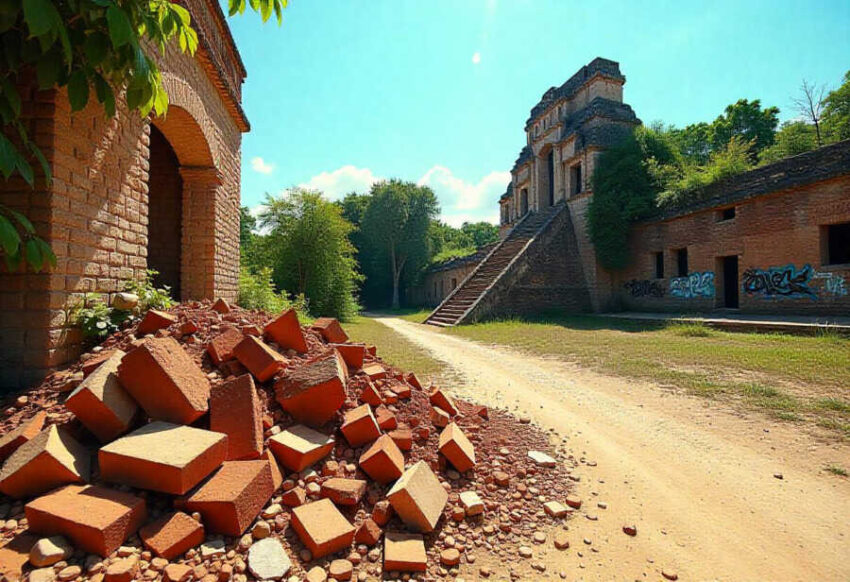Thailand’s tourism sector, already dealing with China’s dwindling visitor arrivals and increasing regional safety worries, now has to contend with a new challenge after a strong 7.7-magnitude earthquake in neighboring Myanmar caused a jolt of fear among overseas travelers to popular Thai tourist spots.
The earthquake, which led to evacuations and light damage to structures in Bangkok, has once more brought travel anxieties, prompting advance hotel check-outs and an estimated 10–15 per cent drop in arrivals in the subsequent fortnight. The latest disturbance comes at a time when it is peak season and the nation is stepping into the low season, casting more doubts on Thailand’s economic turnaround plans that largely rely on a strong tourism recovery.
Thailand’s struggling tourism industry takes another hit as a powerful 7.7-magnitude earthquake rattled neighboring Myanmar, shaking Bangkok and other popular tourist spots. The surprise earthquake brings added woes to an industry already troubled by waning Chinese tourists and persistent safety concerns.
International tourist arrivals are predicted to decline by as much as 15 per cent in the coming weeks. The earthquake, which was felt in several of Thailand’s major tourist destinations, prompted mass evacuations and has had many tourists reconsidering travel plans, particularly in an already risk-averse market climate.
Initial accounts indicate that an estimated 10 per cent of overseas visitors departed hotels prematurely following the quake. Although some of them returned subsequently as they lacked other facilities to stay, the disruption indicates heightened anxiety among visitors and highlights the precarious position of tourist confidence in the region.
While Thailand escaped severe damage compared to Myanmar, the collapse of a construction site in Bangkok that claimed several lives has caused international attention and raised structural safety issues—even in fairly secure city environments. The incident further heightened anxiety among prospective visitors and obstructed recovery efforts for the country’s tourism sector.
Tourism remains one of the pillars of the Thai economy, generating about 13 per cent of GDP and underpinning a fifth of employment. While merchandise exports still grapple with global headwinds, authorities had relied on growth in foreign tourism to drive economic expansion to 3 per cent in 2025. The latest setback now threatens that prognosis.
Consequently, Thai authorities have initiated a comprehensive safety check of hotels and tourist destinations across the nation. Thai authorities are reassuring foreign travelers that Thailand remains a safe destination and security is being tightened across the entire tourism industry.
Even such efforts, however, are not succeeding in creating recovery momentum. Bookings for the upcoming Songkran festival in April—a festival that usually draws millions—is softer than expected. The quake has reinforced existing concerns, particularly among long-distance travelers and parents thinking about holiday safety.
China-bound tourism, Thailand’s largest foreign market, has been particularly disappointing. Stories of crime rings having scam hubs in Myanmar and using Thailand as a transit zone have gone far and wide throughout China. The stories have triggered a steep decline in confidence levels, and Chinese tourists have still not displayed concrete signs of resurfacing.
Following the Lunar New Year holiday travel boom in early February, foreign arrivals have been declining week by week steadily. With the country now in its off-season tourist slowdown and Chinese tourist numbers still lagging, economists have warned that Thailand may miss its full-year target of 38.1 million foreign visitors.
Official data show 8.9 million foreign tourists visited Thailand in the first quarter of the year, a modest 2.9 per cent increase from last year. That growth, though, is seen as disappointing considering the scale of the government’s tourist rebound projects and the spending efforts made to attract foreign travelers.
Relief has been brought by group holiday segments, particularly as overseas flights to major airports have stayed on regular timetables. However, the general situation is still tenuous. Independent travelers, solo visitors, and risk-conscious families—many of whom carefully monitor local safety news—become increasingly hesitant to book trips.
Thailand’s tourism is dealt another blow with a huge earthquake in Myanmar generating safety concerns, causing early checkouts from hotels and a predicted slump in overseas tourist arrivals. The impact strains another industry that has already suffered from falling Chinese tourist arrivals.
As the tremors of the Myanmar earthquake swept through the region, Thailand’s tourism sector finds itself once again in another delicate situation.
Industry officials and policy makers are watching closely whether stronger safety messaging and guarantees will prove enough to repel a sharper drop in visitors during this fragile period.





